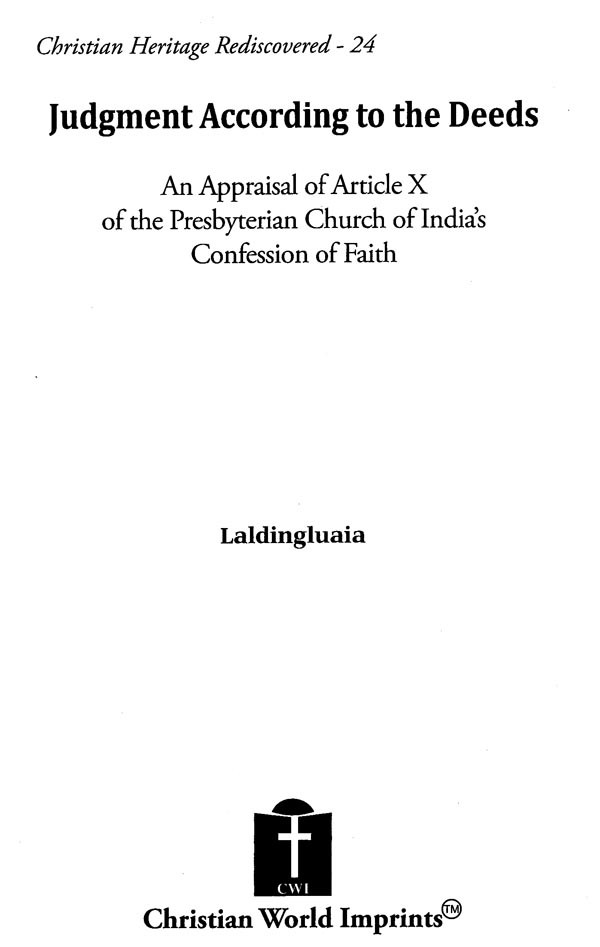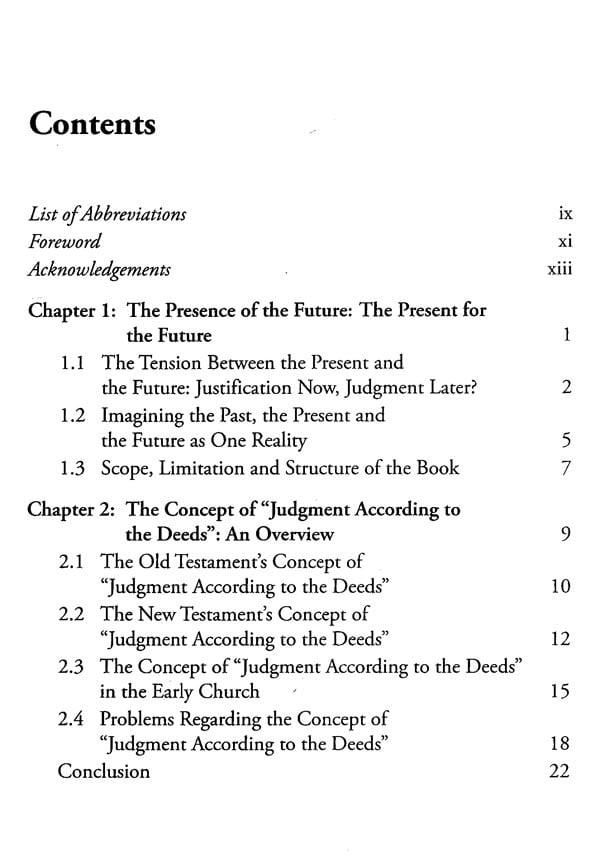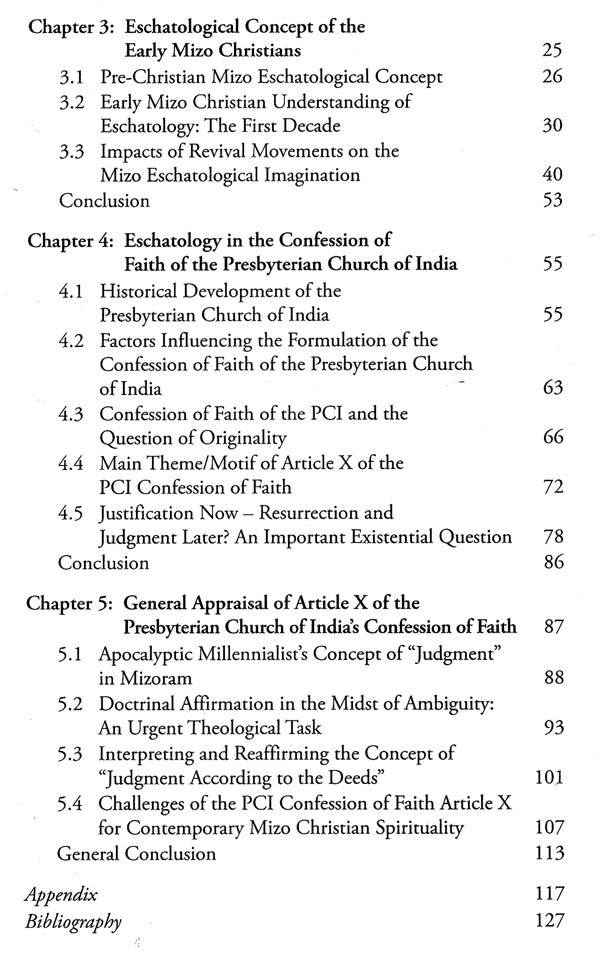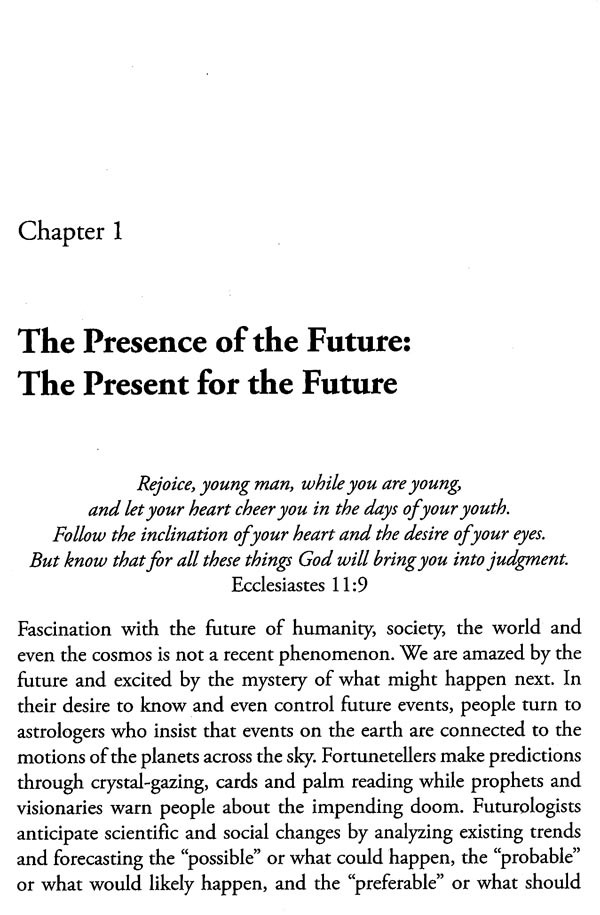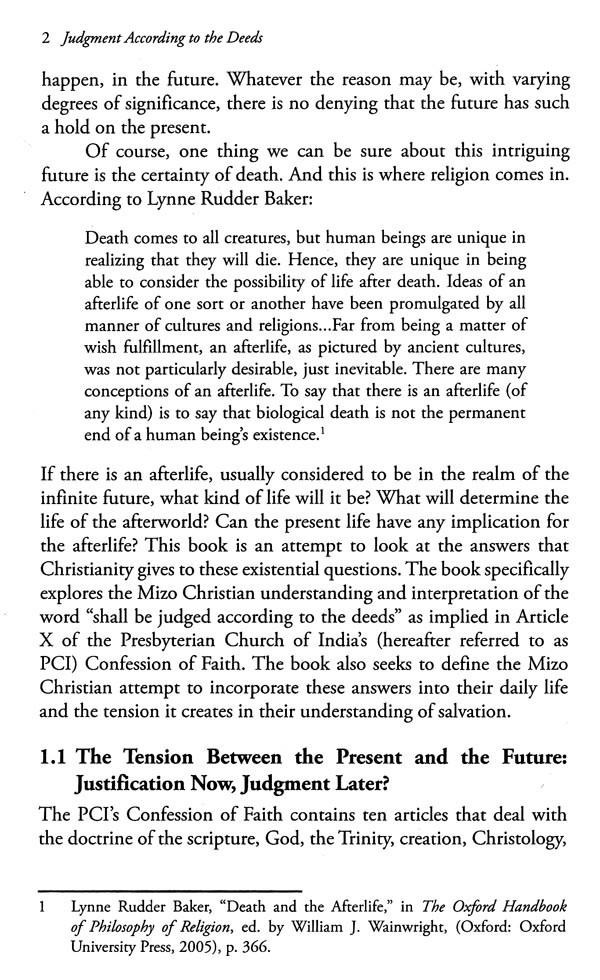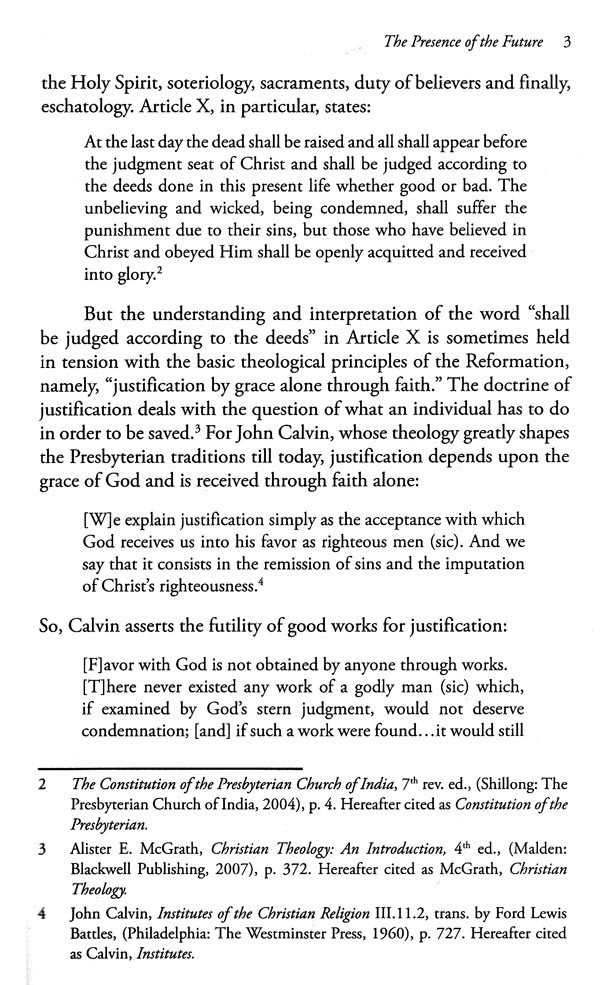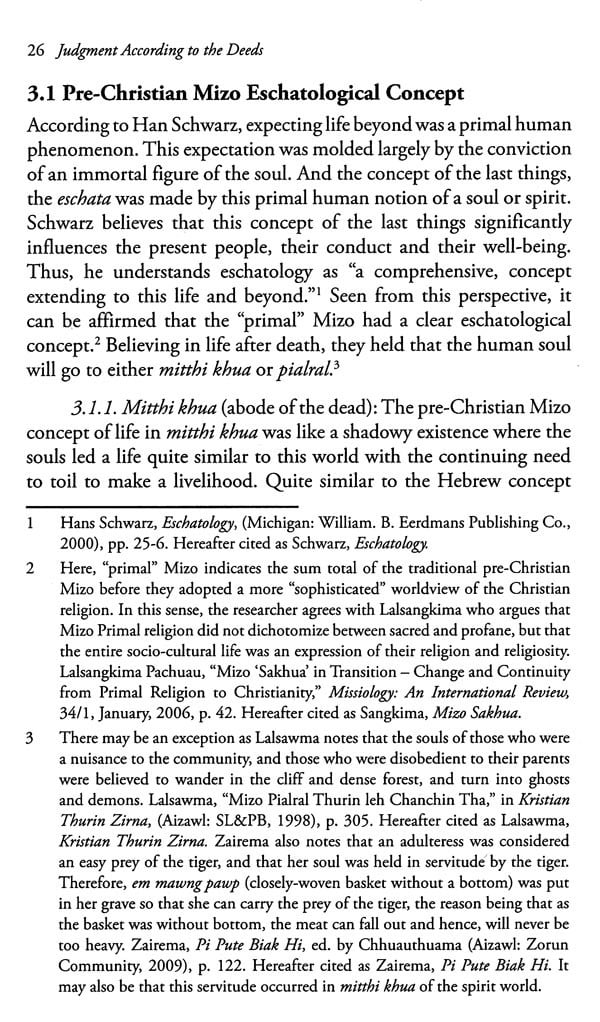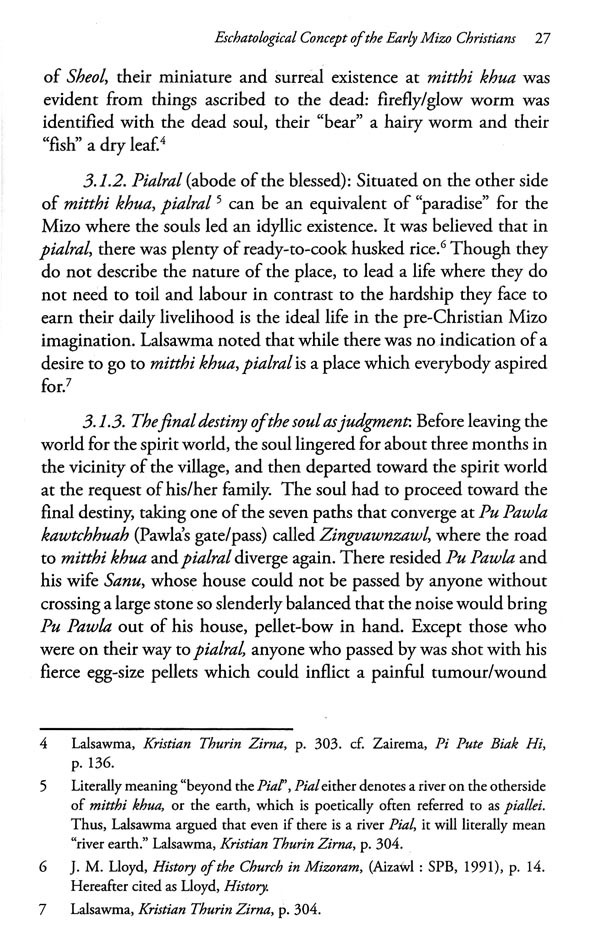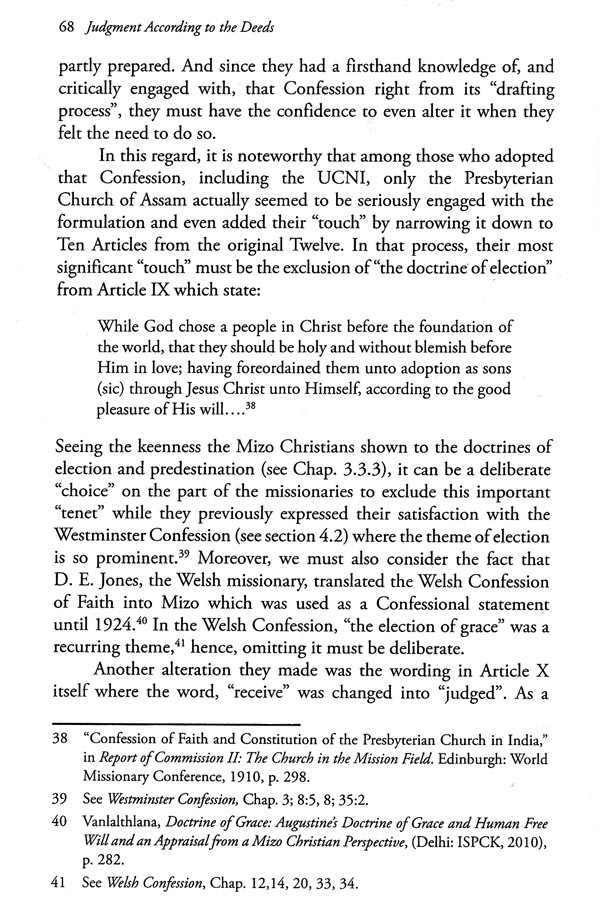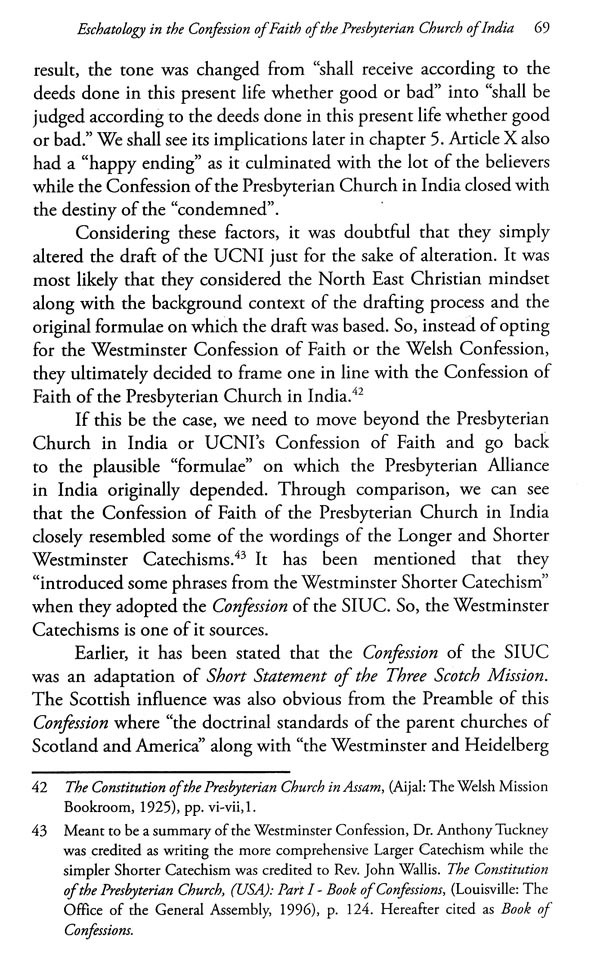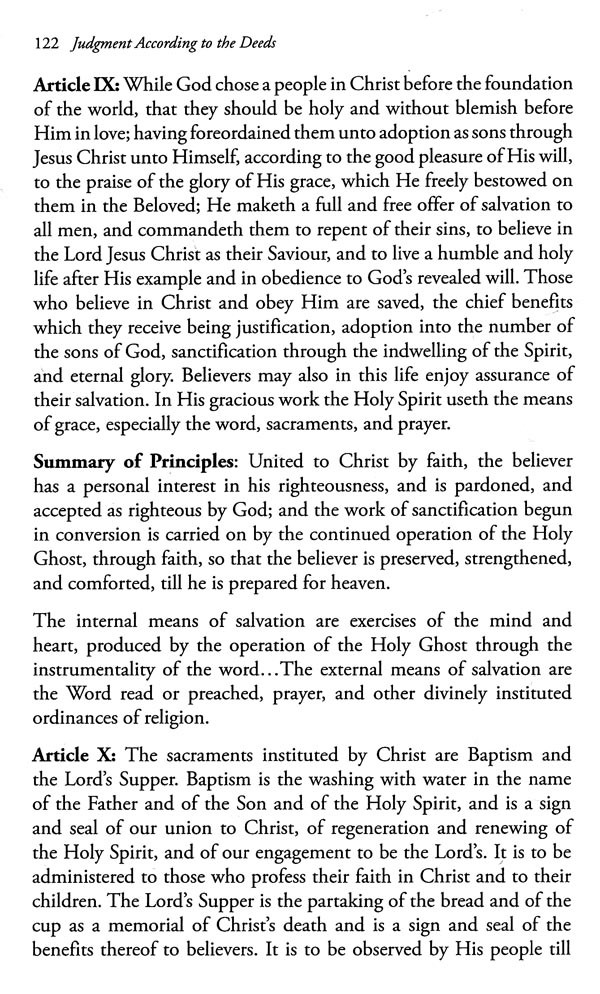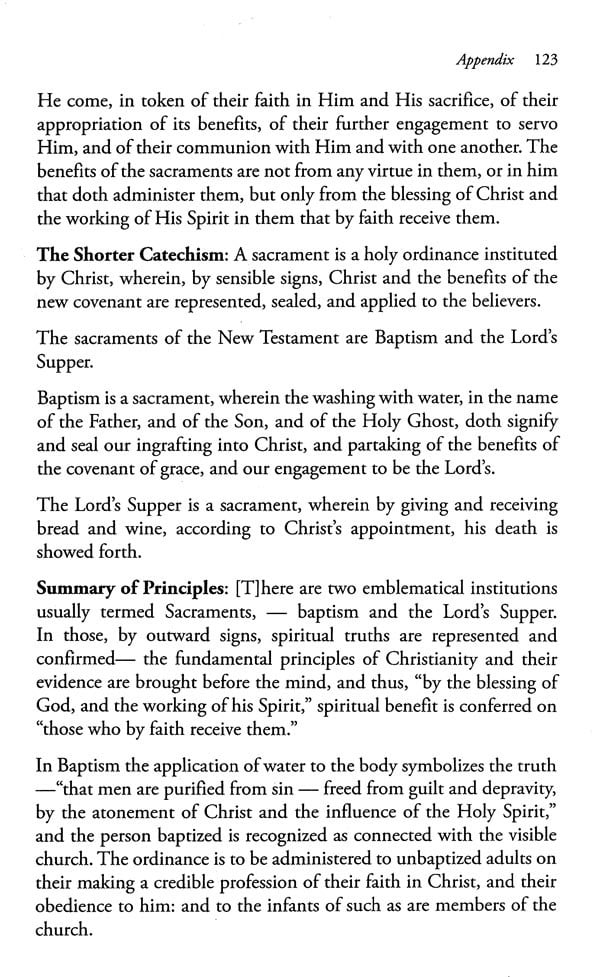About the Book The Presbyterian Church of India's Confession of Faith Article X deals with the doctrine of the Last Day. Its main theme is the resurrection of the dead and the subsequent "final judgment" where the living and the dead "shall be judged according to the deeds done in this present life." But the understanding and interpretation of the word "shall be judged according to the deeds" has often been held in tension with the basic theological principle of the Reformation, namely, "justification by grace alone through faith."
Beside this tension it poses, Article X is silent upon important eschatological themes like the immediate state of the dead, the second coming of Christ and millennialism which were major concerns of Mizo Christians soon after they embraced Christianity. The main focus of the Article X thus seems to be the impending judgment according to one's deeds on the Last Day. Taking all these into account, this book seeks to analyse the concept and the nature of "shall be judged according to the deeds" in Article X.
Asserting the interrelatedness of the concepts "judgment according to the deeds" and "justification by grace alone through faith," this book explores the biblical and theological background, and analyses the contextual understanding of the concept of "judgment" in the afterlife and seeks its implication for shaping the present eschatological imagination of the Mizo Presbyterian Church in particular, and the wider Presbyterian families in India in general.
About the Author Rev. Laldingluaia is an Ordained Minister of the Presbyterian Church of India, Mizoram Synod, teaching Christian Theology and Ethics at the Aizawl Theological College, Aizawl, Mizoram. Prior to that assignment, he had been fully engaged in pastoral ministry in rural context both in and outside Mizoram for a number of years. His areas of interest include the theology of Augustine and John Calvin, Christian eschatology, theological hermeneutics and the interface of science and theology. p>
Foreword One of the author's basic interest in this book is a construction of relevant doctrine of the Christian Hope or Eschatology for the contemporary Mizo Christians. In his critical studies of the phrases judgment according to the deeds' in the doctrine of the Christian Hope as found in Article X of the PCI, he argued "the final judgment basing on the deeds done in the present life can be, on the one hand, a hope for an open acquittal of believers who, though not perfect, live a life of obedience to Christ, and on the other hand, the condemnation of the unbelieving and wicked who shall suffer punishment due to their sins". He finally concluded that "a relevant eschatology for Mizo Christians cannot be limited to its root in the past-be it confessions or traditions. Due to the growth of knowledge through higher education coupled with the ease of interconnection and dissemination of information, current scientific perspectives of the cosmos must be especially taken into account. This will help Mizo Christian imagination to transcend its narrow confinement which tends to connect every local event with eschatological signs of the times.
**Contents and Sample Pages**
